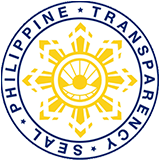The National Capital Region is proud of its first-ever Bahay Aruga, Bahay Pag-Asa located at Molave Street, Sitio Nagpayong, Barangay Pinagbuhatan in Pasig City.
Bahay Pag-Asa is a 24-hour residential care facility that provides rehabilitative programs and services for children in conflict with the law (CICL) and children in need of special protection (CNSP). It implements programs and services, such as homelife services, recreational activities, social services, alternative learning system and health services. Said programs are being monitored by the staff and proper documentation of each activity is filed accordingly.
It is a three-storey building that can accommodate 80 clients. The ground floor has a waiting area, stock room, kitchen and dining room, Administration Office and rooms for isolation, counseling, and social services. The sleeping quarters are located on the second floor.
Likewise, there are two (2) linen rooms, an auditorium, a lecture room and separate rooms for the houseparents and the clients, per case and gender. The third floor, on the other hand, has a broad space for recreational purposes. It also has a computer room and a library for the educational functions.
The Bahay Pag-Asa in Pasig is in compliance to RA 10630 also known as An Act Strengthening the Juvenile Justice System in the Philippines. Section 9 describes the establishment of Bahay Pag-Asa where “each province and highly-urbanized city (the LGUs) shall be responsible for building, funding and operating a ‘Bahay Pag-asa’ within their jurisdiction following the standards that will be set by the DSWD and adopted by the JJWC.”
It was conferred with a level 1 accreditation by the Department of Social Welfare and Development on June 30, 2014. The facility has a three (3) – year accreditation until June 29, 2017.
The legal bases on accreditation of Social Welfare and Development Agencies (SWDAs) are Article 118 of Presidential Decree No. 603 (The Child and Youth Welfare Code of 1977, as amended), which provides that: “no private person, natural or juridical, shall establish, temporarily or permanently, any child welfare agency without first securing a license from the DSWD.”
Another issuance is Administrative Order No. 16, series of 2012 or the Revised Administrative Order No. 17, series of 2008 (Rules and Regulations on the Registration and Licensing of Social Welfare and Development Agencies and Accreditation of Social Welfare and Development and Services) which states that “The Department of Social Welfare and Development is mandated to set standards, register, license, accredit and provide consultative services to organizations engaged in social welfare and development activities.”
Accredited SWDAs enjoy the privileges such as inclusion in the DSWD’s Registry of Registered, Licensed and/or Accredited SWDAs, technical assistance from the DSWD on programs and services implementation, and participation in DSWD’s capability building and skills enhancement, among others. ###



